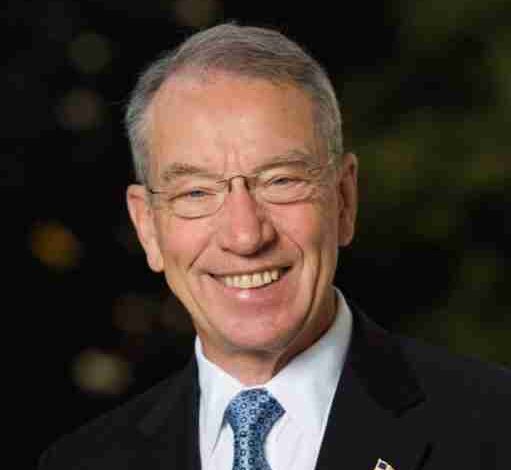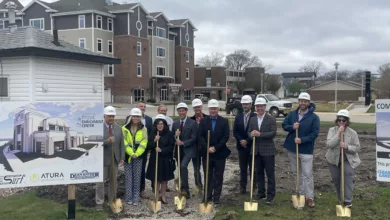Grassley on 988

Q&A: 988 Suicide Prevention Lifeline
With U.S. Senator Chuck Grassley
Q: What is 988?
A: President Trump signed into law a nationwide three-digit number for the National Suicide Prevention Lifeline to simplify access to this life-saving resource. Starting July 16, Iowans experiencing a mental health emergency may dial 9-8-8 to reach a trained crisis counselor for assistance. The current National Suicide Prevention Lifeline, a 10-digit number (800) 273-TALK, will remain in service. In moments of a mental health emergency, this three-digit number will be easier to remember and help save lives. The law also strengthens the national network of more than 200 local crisis centers. It boosts federal funding to help local crisis outlets handle increases in call volume and will allow states to create levy fees on wireless telephone bills if additional funding is needed to meet demand. Creation of the 988 hotline dedicated to mental health emergencies is intended to address the rising need for these kinds of crisis services by social services professionals and free up 911 calls for emergency first response teams, such as law enforcement, fire departments or EMS providers to meet public safety needs in the community. Even before the pandemic, the demand for mental health support and behavioral health services was growing across the United States. Calls to the National Suicide Prevention Lifeline increased 78 percent since 2016. When schools, businesses and the economy shut down during COVID-19, the isolation and uncertainty took a major toll on the emotional wellness of Americans. According to the CDC, suicide in 2020 was the second leading cause of death for people ages 10-14 and 25-34 and the 12th leading cause of death for all Americans. In Iowa centers staffed by crisis counselors located in Cedar Rapids and Iowa City will answer calls and are expecting to manage more than 71,000 calls, chats or texts in the first 12 months of the system’s launch on July 16. In comparison, Iowa received less than 20,000 calls to the National Suicide Prevention Lifeline in 2020. If the two locations in Iowa aren’t able to pick up immediately, the incoming call will be rerouted to another state. When a person’s life is on the line, dialing 988 and having that call answered by a trained crisis counselor on the other side of the line who is able to have a conversation, talk through the caller’s struggles or send a crisis mobile team can make all the difference. While 988 will help remove the stigma to access mental health care, I will continue to lead the way to strengthen mental health awareness and supports.
Q: How would the Justice and Mental Health Collaboration Act improve outcomes for at-risk individuals and strengthen public safety in the community?
A: I often say an ounce of prevention is worth a pound of cure. In my county meetings with law enforcement leaders, correctional officers, mental health professionals and parents, there is broad consensus to work in collaboration to help keep at-risk youth on the right path to achieve their fullest potential and become productive contributors to society. Addressing mental health issues and getting emotionally distressed individuals’ treatment and behavioral health services also enhances public safety in the community. Nearly two decades ago, I helped pass legislation that’s helped law enforcement and intervention teams assist individuals in their communities experiencing a mental health crisis. Because of the original law, state and local governments have been able to set up and fund mental health courts, specialized first responder options, in-facility treatment for mental illness and substance abuse, and intervention for juvenile offenders. As the ranking member of the Senate Judiciary Committee, I’m an original co-sponsor of this bipartisan bill to reauthorize the 2004 law. I’m glad it passed the full Senate unanimously in June. It merits swift attention from the House of Representatives. Getting this bill to the president’s desk will help ensure mental health services are strengthened in local communities across the country. Specifically, our bill would support mental health courts and veterans’ treatment programs; support programs that offer specialized training for public safety officers and mental health providers; support co-responder teams that deploy mental health professionals with law enforcement and allow an around-the-clock capacity; and allow jurisdictions to integrate suicide prevention programs in jails and detention facilities. It also allows funds to be used in implementing the 988 programs.
With crime rising across the country, including violent crimes at the hands of individuals with mental health issues, too many Americans wake up and wonder if they will be safe going about their daily lives, at work, school, grocery store and community events. Bolstering our mental health supports and services in collaboration with community stakeholders is an urgent and vital policy that will help improve public safety, get treatment to those who need it and give peace of mind to moms and dads across America.




